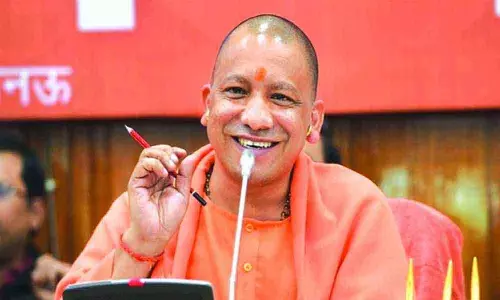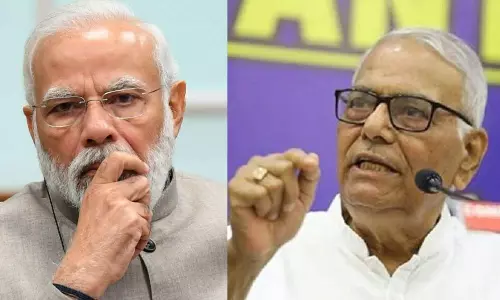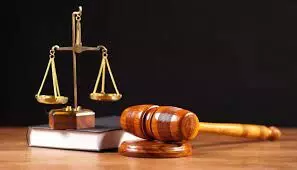
Courts need facilities - and independence too
text_fieldsDuring the inauguration of the Aurangabad bench of the Bombay High Court, Supreme Court Chief Justice N.V Ramana called for urgent steps for improvement of infrastructure in the courts. He said this while inaugurating the building of the Aurangabad bench of Bombay High Court. It was Justice Ramana himself who once suggested that there be a National Infrastructure Authority of India to oversee such things with judicial oversight to back it up. At the function which was also attended by Justice Minister Kiran Rijiju and others, Justice Ramana said to set up the same, legislation should be made during the Parliament Winter Session. On the basis of data relating to the derelict state of courthouses across the country Ramana underlined the need for this.
Clean, running water facilities are only available in 54% of courthouse complexes. 26% do not have women's toilets and 16% of complexes do not have toilets at all! Decayed buildings host judicial activities in most cases - even the two-storey building that the Chief Justice inaugurated was first conceived in 2011. There is one other thing that he did not point out - that the Patel statue which was conceived much later was completed at a fast pace and the new Parliament complex construction, which cannot be said to be of urgent importance, is both proceeding even faster. These are signs of skewed priorities he declared. Needless to say, the facilities in the courts are directly related to the justice that the common people deserve. It is not pleasant that even for the basics required for the functioning of the judiciary, repeated pleas must be made to the executive. Former Chief Justice T.S Thakur had once even broken down while begging Prime Minister Narendra Modi to find a solution for the multitudes of vacancies in the judiciary. Though it is not just due to the Centre's reluctance to take cognizance of the vacancies, but also to the system of Collegium, the excessive dependence on the executive is sure to hamper judicial freedom.
It is not only in the matter of infrastructure, that the judiciary becomes dependent on the mercy of the state executive; there is also this dependence in appointments and transfers. There are numerous reports of judges being denied promotions or given transfers as they passed judgement unsavoury to the ears of the government or counter to its political interests. On the other hand, many judges have been rewarded with post-retirement benefits for by being in line with government's interests. Those in power who do not care for the judiciaryare nevertheless aware of the power of the executive. We have seen that despite being pulled up by the highest court for their tardiness in investigating the Lakhimpur Kheri violence, the UP government's pace of action did not improve. As the guardian of the Constitution who has the power to correct the abuses of the government, it is important for the judiciary to have the independence and self-sufficiency necessary to function efficiently and fairly.
Assuming these issues are even fixed, it is the judiciary's own responsibility to deliver justice without delay. Seven months ago, the Allahabad High Court declared 43-year old Vishnu Tiwari innocent of all crimes and freed him - but after 20 years in jail for a false rape case. He was accused at the age of 23. He was poor and so could not afford a decent lawyer and the end result was a sentence of life imprisonment. He was poor, could not afford a decent lawyer and was awarded a sentence of life imprisonment. And yet when he submitted proof of his innocence during the appeal process, the appeal gathered dust in the courtroom due to document deficiencies; ; something any lawyer could fix within a week. It was lawyer Shweta Singh Rana who agreed to represent him for free in 2019 and eventually submitted his appeal after correcting everything. And then he was declared innocent by the High Court. Which court can give him back his youth or the 20 years he spent wasting away in jail?
Digitisation of court facilities has gone the same way as the building of court infrastructure - in other words it is slow. If it were not, the likes of Vishnu Tiwari could get the mistakes in the petition fixed in their documents in a single day. If online court services had been available during the Covid-19 lockdown period then many pending cases could have been resolved. But the proposed 'Interoperable Criminal Justice System' is still a mere concept. In the function at Aurangabad, Justice D.Y Chandrachud had cited a piece of data: that of the number of pending cases nationwide. The people of India, he said, have the right to know about the proceedings of courts and the efficiency of judges. In addition to the infrastructure woes of the court, the issues of appointment of judges in vacancies, independence and efficiency of the judiciary and a mechanism to dispose of pending cases are issues that demand urgent attention.
























